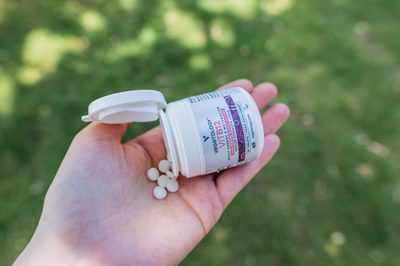
Looking after our health and wellbeing includes a healthy diet, regular exercise and getting enough sleep, but often we can turn to supplements to help too.
Looking after our health and wellbeing includes a healthy diet, regular exercise and getting enough sleep, but often we can turn to supplements to help too.
Not only can they help us with a boost in a vitamin that we’re lacking, help us to troubleshoot problems such as joints or bone health but they can also give support through life stages like pregnancy or menopause too.
So whether you’re looking for the best supplements for health or deciding which are the best vitamins to take daily, we’ve explained what supplements are and how they can help you…
What are supplements?
A dietary supplement is a manufactured product intended to supplement a person's diet by taking a pill, capsule, tablet, powder, or liquid. A supplement can provide nutrients either extracted from food sources, or that are synthetic.
Supplements are products that contain one or more dietary ingredients, such as vitamins, minerals, herbs, amino acids, enzymes, or other substances, intended to supplement the diet. They come in various forms, including pills, capsules, powders, liquids, and softgels. The primary purpose of supplements is to provide nutrients that may be lacking or insufficient in a person's diet.
There are different categories of supplements, which each come with their own benefits for the body:
It's important to note that while supplements can be helpful, they can’t replace a balanced diet or healthy lifestyle. Before starting any supplement plan, you should speak with your doctor or a health professional first to make sure it’s the right decision for you.

What is dietary supplementation?
Dietary supplements are substances you might use to add nutrients to your diet or to lower your risk of health problems such as osteoporosis or arthritis. Dietary supplements come in the form of pills, capsules, powders, gel capsules and tablets, extracts, or liquids.
The most common type of dietary supplements are multivitamins, which can often help to deliver a boost of nutrients or vitamins in one tablet that’s taken daily as part of a healthy lifestyle routine.
Other popular supplements include vitamin D, vitamin B12, minerals like calcium and iron as well as botanic and herbal products such as echinacea and garlic. There are also options like glucosamine that’s good for joints, probiotics that help digestion as well as fish oils that can have benefits for cognitive development and function.
Why should I take supplements?
The decision to take supplements depends on you as an individual. It can depend on your circumstances, your diet, your lifestyle, your health goals as well as any potential nutritional deficiencies that you might be facing.
If you’re keen to start taking a supplement, then it can be wise to speak with a health professional to determine if there’s an area that you’re lacking or need support and then to discuss what might be the right option for you.

